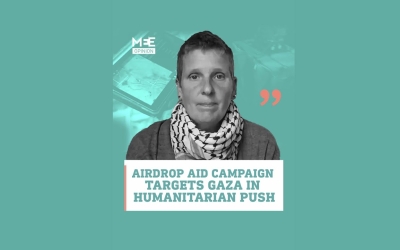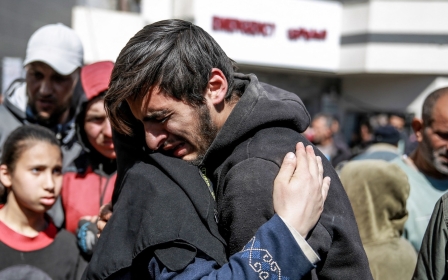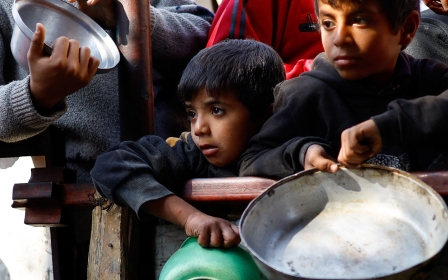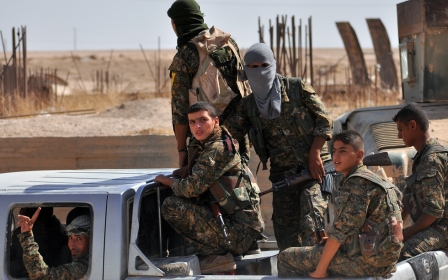War on Gaza: What do Palestinians think about airdropping aid, and will it end the famine?
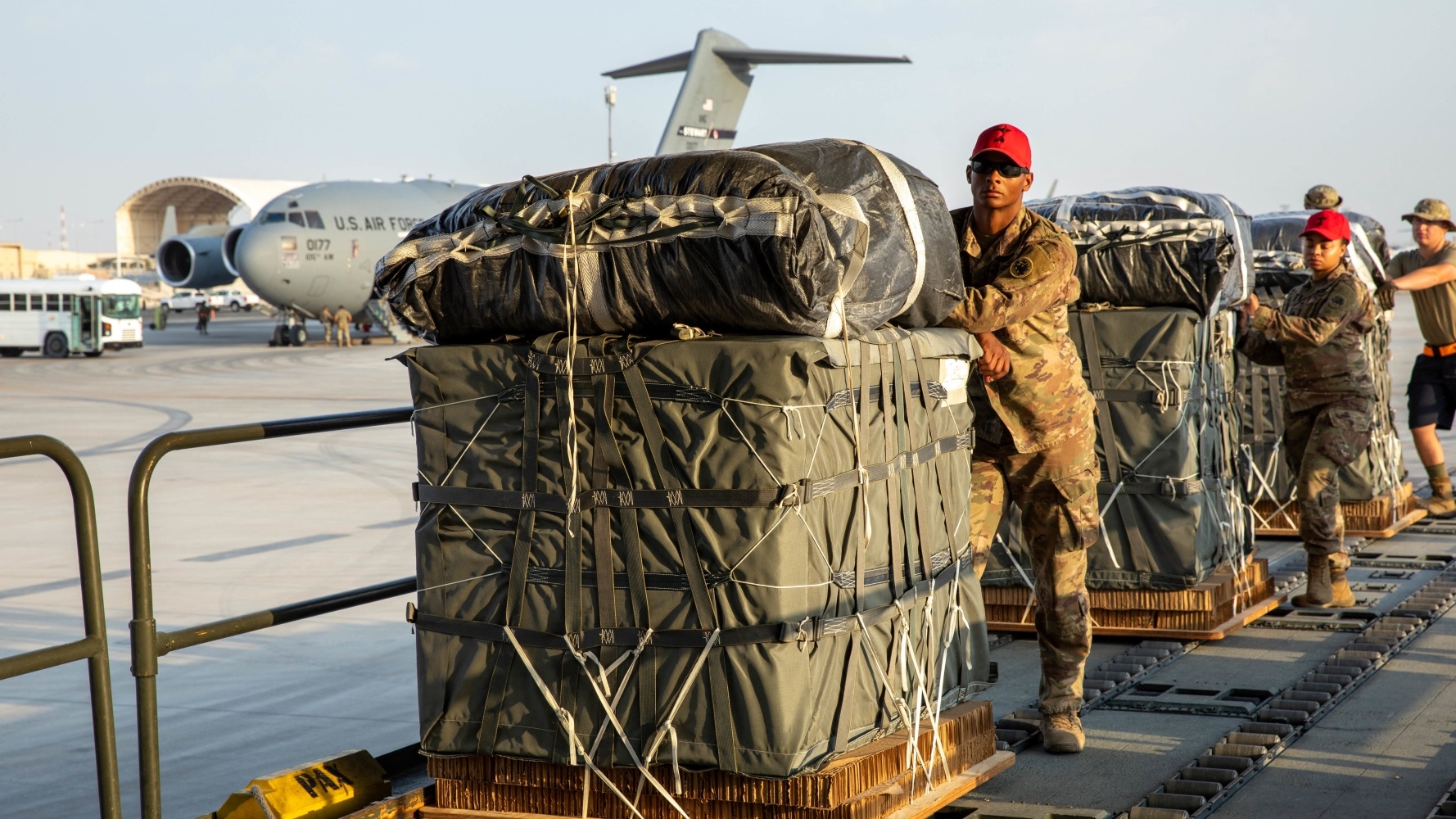
As Israel continues to tighten the blockade on Gaza and impose restrictions on the entry of aid trucks through land crossings, a number of countries have resorted to delivering aid from the air.
Airdropping aid is a method used when all other alternatives fail, and when a population is in dire need of life-saving aid while it is cut off from the world.
So far, Jordan, Egypt, the United Arab Emirates and France have coordinated with Israel to airdrop aid in different areas of the blockaded strip, which has been torn apart by five months of war.
The US on Sunday carried out its first humanitarian aid airdrop in Gaza with more than 30,000 meals parachuted in by three military planes. The operation was reportedly carried out jointly with Jordan's air force.
The government media office in Gaza said on Monday that 2.4 million residents are suffering from circumstances amounting to famine, particularly in the north and centre of the enclave.
New MEE newsletter: Jerusalem Dispatch
Sign up to get the latest insights and analysis on Israel-Palestine, alongside Turkey Unpacked and other MEE newsletters
As of Wednesday, at least 16 children have died due to hunger, thirst or malnutrition, according to the government. At least 700,000 people are currently experiencing "severe hunger" and are also at risk of death, the statement added.
'Pointless'
Palestinians say the airdropped aid amounts are too small in comparison to the needs of a starving population in Gaza.
"It is pointless," Ahmad Mansour, a Palestinian in the south of Gaza, told Middle East Eye. "A lot of the aid ended up in the sea or in areas controlled by the Israeli army. You have got thousands of people running towards a few parcels of aid. They are playing games with us."
'I could not run fast enough to catch some of the aid parcels. I cannot swim either. Survival is for the fittest at this point.'
- Samah Al-Kahlout, Palestinian mother
"I cannot understand why the world cannot pressure Israel to allow humanitarian aid trucks in. Why can humanitarian aid workers not be protected to distribute the aid fairly? Is the new motto: 'we will eat and get medicine only if we are lucky enough to catch something falling from the sky'?" the 42-year-old Mansour added.
Online videos over the past week have shown thousands of Palestinians gathering on a Gaza beach looking at humanitarian aid parcels landing in the sea. Some swam or used small boats to try to save the aid.
Samah Al-Kahlout, a 37-year-old mother of three children based in the south of Gaza, believes that she stands no chance of receiving any aid if it continues to be airdropped. "When I heard that Jordan would drop some aid, I ran out. My children have not had a proper meal in a long time," she told MEE.
Kahlout had to go on her own to get some aid, as her husband is wounded.
"I could not run fast enough to catch some of the aid parcels. And I cannot swim either. I ended up just standing there watching people competing to get some food back to their families. Survival is for the fittest at this point," she said.
In response to the US airdropping of aid, Palestinians have criticised the irony of Washington's support for Israel's onslaught and its supply of aid.
"Seeing the airdropped aid coming from the US is an absolute joke," said Yossef Abed, 57. "They dropped aid in the north and helped supply Israel with bombs to drop over us in the south after they starved the north. Are they trying to feed us today so they find more people to kill tomorrow?"
'Flour mixed with blood'
More Palestinians are already feeling unsafe to gather to collect the airdropped aid, as they risk being shot at and killed by the Israeli army.
Last week, over 100 Palestinians were killed and hundreds more wounded when Israeli forces fired at an aid convoy in Gaza City's al-Rasheed Street. The incident has since been dubbed the "Flour Massacre" as residents of Gaza City had gathered seeking flour and other food, with the area completely cut off from aid by Israeli forces.
Following the shooting, MEE spoke with a young man who was shot in the leg during the attack.
"I got a bag of flour, but it is mixed up with my blood now," he said, while being carried by volunteer rescuers. "Is Israel trying to teach us a lesson to not even come close to humanitarian aid? If we do not die in air strikes, we are going to die of starvation. If we dare and try to get food, they will shoot us."
"I am not going back to my family with food. I am going back with a disability," he added.
A few days later, an Israeli air strike on an aid truck in Deir al-Balah, central Gaza, killed at least nine people and wounded several others, Palestine's Wafa news agency reported.
Inefficient and expensive
Aid professionals have said that supervised land delivery of humanitarian aid remains the most efficient method to deliver aid to over two million Palestinians who are in dire need of medicine, food and water.
Airdropping aid is known to be an expensive and inefficient method of aid delivery.
Philippe Lazzarini, the director of the UN Refugee and Works Agency (Unrwa), said airdropping aid is "a last-resort, extraordinarily expensive way of providing assistance". He added that opening the land crossings should be the solution.
Akram Al-Satari, a political analyst in Gaza, said that normalising airdrops should not be encouraged.
"Israel is trying to market to the international community that Gaza is a chaotic place where hungry people fight for food and thus are not even worthy of aid," he said. "They are creating a need for a civil administration in Gaza to reinforce law and order, as an alternative to an official Palestinian government."
Meanwhile, Amjad Al-Shawa, Director of the Palestinian NGO Network, said that airdropping aid can be used in limited situations to alleviate the struggle of war-torn people in Gaza. In the absence of a ceasefire, aid could be airdropped in areas where military operations are ongoing or in areas inaccessible to humanitarian trucks due to the destruction of the infrastructure, he said.
"The dropping of the aid in the sea was justified in the sense that it was safer than dropping it randomly on land where thousands of displaced people have relocated," he told MEE. The aid might even fall on tents, killing more displaced people, he added.
But he insisted that it should not be an alternative to ending the blockade.
"The airbridge cannot be an alternative to the opening of the borders and allowing land delivery of aid. It should only be used to increase the amount of aid and access more areas, but it must not be the way forward," Shawa said.
He added that the international community should apply more pressure on Israel to open all the borders before more people die of hunger.
This article is available in French on Middle East Eye French edition.
Middle East Eye delivers independent and unrivalled coverage and analysis of the Middle East, North Africa and beyond. To learn more about republishing this content and the associated fees, please fill out this form. More about MEE can be found here.


